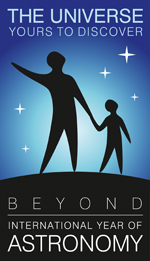New Media in a digital world: Tool or Threat for Learning?
21 September 2010
The Media & Learning Conference taking place in Brussels on 25 and 26 November 2010 addresses how new media can contribute to improve learning. Media literacy and digital fluency are amongst the most important skills young people can learn in order to find, use and create accurate information to become the creative citizens of a future society. But how can educators be sure that learners are learning better thanks to media?
During this conference practitioners, experts and researchers will discuss how learners handle video and audio in a meaningful and thoughtful manner to support their learning, how media repositories complement existing teaching and learning materials effectively, how young people learn by creating their own media and how ICT can enhance the teaching and learning process.
The programme for the Media & Learning: towards the era of digital fluency Conference 25-26 November 2010 Brussels is now finalised and available online (http://www.media-and-learning.eu/programme). Pascal Smet, Flemish Minister for Education, Youth, Equal Opportunities and Brussels Affairs will open the conference by introducing the three main discussion topics: media literacy, re-use of existing media and the value
of content created by learners and teachers. Speakers include Paul Bottelberghs, writer and media innovator; Pelle Snickars, co-editor of "The YouTube Reader"; Helen Keegan, educational social media innovator and practitioner; Francesc Pedró, lead researcher with the OECD Centre for Educational Research and Innovation, Rowan Simms from iTunes U and Paul Ashton, educational broadcaster and commissioning editor of Teachers TV, UK.
The conference programme includes discussions and presentations about existing media resource banks like those provided by AthenaWeb, lesite.tv and EduHi as well as practical schemes aimed at increasing teachers and trainers skills in creating and publishing their own media-based resources. Policy and practice come together in online and offline discussions on topics like how best to teach media literacy and what resources are available to enhance
understanding of the complexities of copyright in the sector. Best practices from the US, Spain, Denmark, Norway, Italy and the UK will highlight how educators are keeping up with student expectations and experience. Games and media-rich materials like Poverty is not a Game (PING) and The Climate Mystery will be demonstrated and discussed. Teachers from the UK, Italy, Belgium and Denmark will show how they use media to make teaching and learning more exciting and more effective for teachers and learners.
The Media & Learning Conference will be supported by an online discussion that starts one month before the actual Conference and that will facilitate networking and exchange of ideas before, during and after the conference within the Media & Learning community of practice.
On Thursday 25th November alongside the Media & Learning Conference, the MEDEA Awards Ceremony takes place where the winners of this year’s awards will be announced.
More information from the conference website at: http://www.media-and-learning.eu
Search IYA2009 Updates

National Nodes: 148
Organisational Nodes: 40
Organisational Associates:33
National Websites: 111
Cornerstone Projects: 12
Special Task Groups: 11
Special Projects:16
Official Products:8
Media Partners:22


